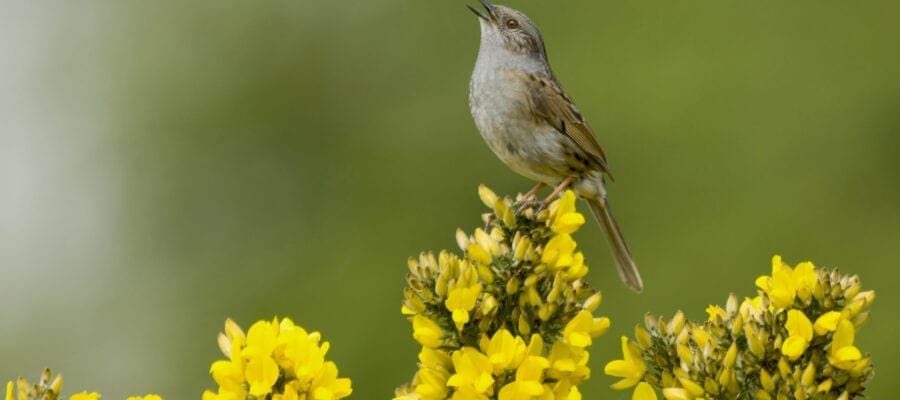Yes, it seems that spring has finally sprung, and the birds are awake early to tell everyone the good news…
Every spring across the UK, an extraordinary thing happens. Early in the morning, woodlands and gardens that fell silent in winter are suddenly awakened by the trilling, chirping and warbling of birds. This is known as the dawn chorus, as it begins just as the sun is rising. Every male bird is singing his heart out to attract a mate and defend his patch. For us, it’s nature’s biggest free concert.
To really appreciate the dawn chorus you need to be outdoors before sunrise. Alternatively, if you’re lucky enough to be surrounded by bird-filled trees and hedges, fling open your window and listen in bed! With a little effort you can easily learn which birds are serenading potential partners. The garden is a good place to start. There’s the blackbird, the first to sing, with its fruity warble; the great tit, singing “tea-cher, tea-cher”; and if you’re lucky a song thrush, repeating notes and phrases four or five times in a row.
Further afield birdsong highlights include the skylark, which sings from high above the fields; the willow warbler with its tinkling, descending series of notes and the yellowhammer singing “a little bit of bread and no cheese!”
At the beginning of May the early morning gardener will be treated to the sweet sound of birdsong as the local winged wildlife tweet, trill and warble their way through the dawn chorus. It’s a real highlight of spring, and feels like the prefect reward for giving nature a home in the garden. It certainly lifts the spirits, something Kings College London researchers have proved recently by studying the effects of birds singing on people’s moods. They were able to show that songbird-induced happiness can last for several hours after enjoying this free concert.
Many of them are the gardener’s friends, gobbling up the snails, slugs and caterpillars that might otherwise be devouring our produce.
For example, the song thrush is well-known for its habit of smashing snails on its own personal ‘anvil’, a large stone or rock. There aren’t as many of these birds around nowadays which makes hearing them sing even more of a treat. They tend to repeat notes and phrases three or four times, before moving on to choose another pattern of sounds. The familiar blackbird has a similar voice but sings more of a flutey, rich warble, starting bright and early from a high point on a tree, hedge or garden shed.
The robin is another songster that has a good working relationship with gardeners. Following us around as we dig and even perching on the handle of a fork or spade, this bird seems to enjoy our company. In fact we’re the modern equivalent of the deer and boar it used to follow around the forests of Europe as they snuffled through leaf litter and turned over the soil, revealing the robin’s favourite meal of juicy bugs. Its sweet song can be heard all year round with even female robins singing during the winter months.
The dunnock has an impressive light twittering song and despite being a muted grey and brown, a rather colourful social life. Male dunnocks will mate with more than one female, and females with more than one male, resulting in sometimes complex nesting arrangements. You may see three of these dainty little insect-eaters shuffling around together on the lawn, flicking their wings flirtatiously at one another.
Listen out for the squeaky-gate “tea-cher tea-cher” two note song of the great tit, who, along with the blue tit, will be on the lookout for caterpillars in your fruit trees. Both can be easily encouraged to nest with a well-placed birdbox, a smart move for a gardener who wants to enlist their help as natural pest controllers.
Want to get to know our singing superstars better? International Dawn Chorus Day is on Sunday, May 6, and to celebrate the RSPB is holding a number of special guided walks around the UK. Find out more here: rspb.org.uk/dawnchorus











